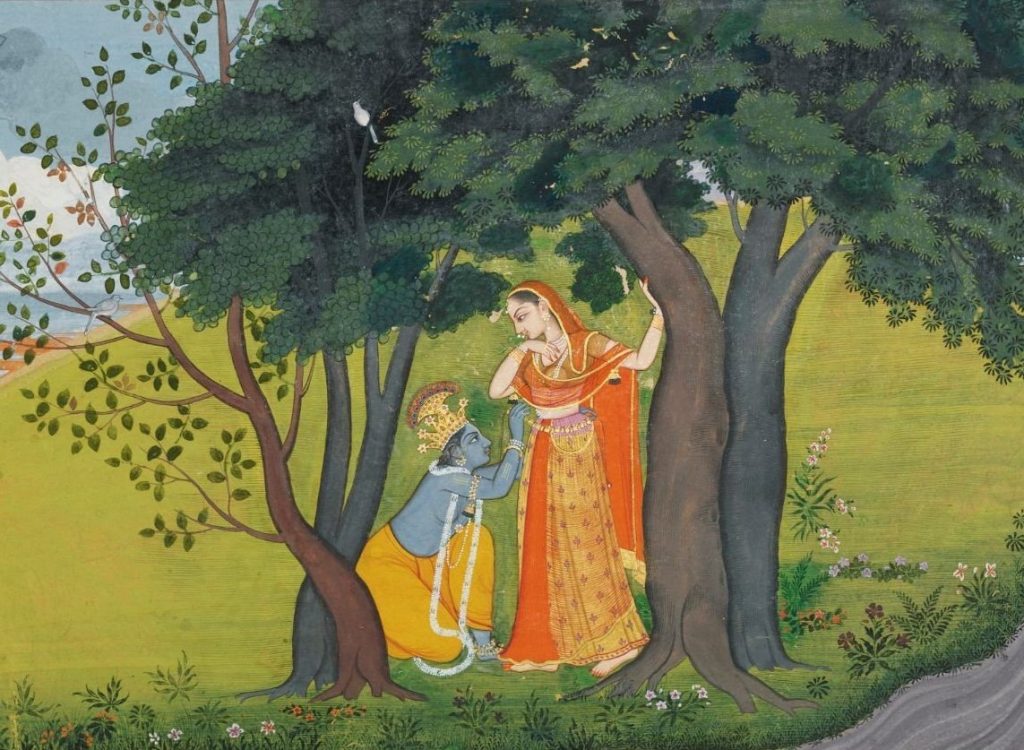In India a major and highly visible aspect of life is religion. Even today, it governs every thought, controls every action and defines the identity of almost all Indians. The majority, about 80 per cent, are Hindu, about 11 per cent are Muslim, 5 per cent Christian and Sikh, Parsees, Buddhist, Jains, and other small communities complete the numbers. Hinduism has flourished down the ages with no one founder and no single sacred text. As a philosophy and a way of life, it absorbed and assimilated with a fluid tolerance, creating a pantheon of deities to choose from. They can be found on almost any street, clad in vermilion at the base of a banyan or peepal tree, or in little corners of homes. Buddhism, Jainism, and Sikhism which preached nonviolence and equality emerged as a reaction to the increasingly rigid stratification of the society. Islam came to the country with traders from the Arab world, but its interaction with Indian culture gave rise to magnificent architecture, music, painting, costumes and cuisine. While the Christian population gained prominence with the arrival of European missionaries, Zoroastrians and Jews fleeing from persecution found a home here. A microcosm of religions, the religions that took birth here or came with the traders and invaders make up the country’s secular fabric. Explore this fascinating facet of India in our curated experiences that span the length and breadth of the country.
Orchha – Festival of Ram Vivah
Celestial Marriage
Religion has always relied on stories to communicate high philosophy to the everyday ordinary people in the simplest form. Celestial marriages between Hindu divinities formed a part of the repertoire to impart practical advice on matrimony. Every November/December, Orchha, a sleepy town en route Khajuraho, celebrates the marriage of Ram and Sita, the main protagonists of the Indian epic Ramayana.
Revel in this grand festival of Ram Vivah, a huge marriage procession accompanied by dancing horses and musicians.
Dharamshala – Day of the Buddha
The Middle Path
McLeodganj, a little further away from the scenic town of Dharamshala has earned the title of “Little Lhasa” and rightly so. It is here that Tibetan Buddhism found a second home, the adopted hometown of the 14th Dalai Lama who fled Tibet in 1959 after the invasion of the Chinese forces.
Day of the Buddha is about the life and times of the Tibetan exiles, their hopes and yearnings, how they have maintained their unique way of life, and also about their cultural assimilation.
Mumbai – Jewish Heritage Walk
The Jewish Connect
During the 3rd Anglo Indian war between the British and Tipu Sultan, Samaji Hasaji Diveka, a Bene Israeli, was captured as a prisoner of war. It is believed that the Bene Israelis have inhabited the city of Mumbai for over 2000 years. Tipu’s mother being aware of Judaism, requested Tipu to enlist Divekar in the Mysore Army. Upon his return to Mumbai as a wealthy man, Samaji Hasaji Divekar commissioned the first Jewish place of worship in the city.
Let’s Say Shalom – Jewish Heritage Tour is an ode to the 2000-year-old Jewish heritage of India and its expansive contribution to the city of Mumbai.





